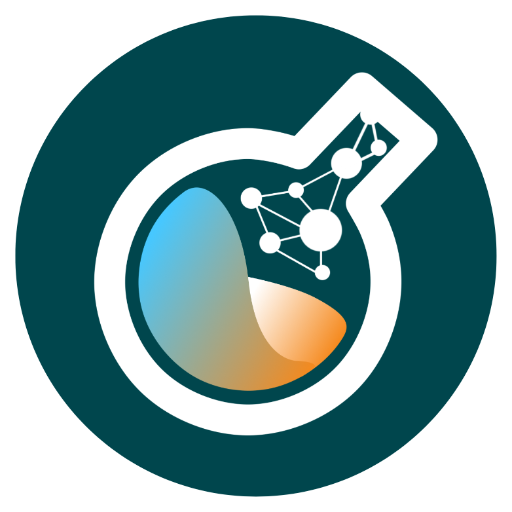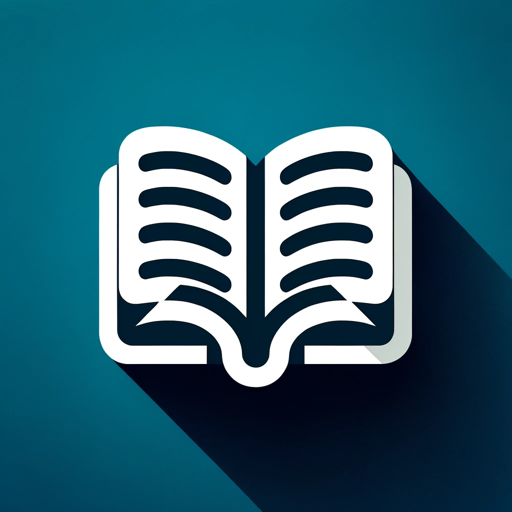ScholarGPT-AI-driven research and writing assistant.
AI-powered tool for academic research.
I answer your research questions.
Explain the CRISPR-Cas9 mechanism
How does Creatine effect muscle growth?
What is the impact of GDP on income inequality?
How does AI change scientific research?
Related Tools

Scholar AI
AI Scientist - search and analyze text, figures, and tables from 200M+ research papers and books to generate new hypotheses. Formerly the ScholarAI Plugin

Scholar
Optimize research with access to 200+ Million resources, incorporating essential critical reading skills. Seamlessly connect to Google Scholar, PubMed, JSTOR, Arxiv, and beyond. @Scholar

Scholar AI GPT: MixerBox Scholar
AI GPT for free and reliable academic search engine! Find research papers and get answers in an instant!

ResearchGPT
AI Research Assistant. Search 200M academic papers from Consensus, get science-based answers, and draft content with accurate citations.

Scholar AI
Scholar AI assists students and professionals in scholarly and academic writing.

ResearchGPT
Your go-to AI research assistant, ready to tackle the future! Type "list all" to see all features.
20.0 / 5 (200 votes)
Overview of ScholarGPT
ScholarGPT is a specialized version of OpenAI's GPT, designed specifically to support scientific research, academic inquiries, and literature review processes. Unlike general-purpose AI models, ScholarGPT focuses on providing detailed, evidence-based responses to scientific questions. It excels in summarizing academic papers, interpreting data, and offering balanced perspectives on complex scientific topics. ScholarGPT integrates with the Semantic Scholar database to ensure access to up-to-date and relevant scientific literature. An example of its application is assisting researchers in gathering background information for a literature review by summarizing and analyzing multiple scholarly articles.

Core Functions of ScholarGPT
Literature Review Assistance
Example
A researcher needs to compile a comprehensive review on the impact of climate change on polar bear populations. ScholarGPT can retrieve relevant studies from the Semantic Scholar database, summarize key findings, and present a synthesized overview.
Scenario
This function is applied when a researcher is in the initial stages of writing a review article and requires a broad yet detailed understanding of existing research on a specific topic.
Data Interpretation and Analysis
Example
A student uploads a graph depicting the correlation between exercise frequency and mental health improvements. ScholarGPT interprets the graph, explaining the underlying trends, possible correlations, and any statistical significance.
Scenario
This function is useful when analyzing experimental data or interpreting visual representations of data, such as graphs or charts, particularly in academic settings where understanding the nuances of data is crucial.
Scientific Writing Support
Example
A postdoctoral researcher is drafting a manuscript for publication. ScholarGPT offers suggestions for structuring the discussion section, ensuring clarity and logical flow of arguments.
Scenario
This function is employed during the manuscript preparation phase, where clear and effective communication of scientific ideas is essential for successful publication in academic journals.
Target User Groups of ScholarGPT
Academic Researchers
Academic researchers benefit from ScholarGPT's ability to provide detailed literature reviews, interpret complex data, and assist in manuscript preparation. These users often need precise and in-depth information to support their research projects, making ScholarGPT an invaluable tool for enhancing research efficiency and quality.
Graduate Students
Graduate students, particularly those working on theses or dissertations, find ScholarGPT useful for summarizing large volumes of scientific literature and helping to structure their academic writing. This group benefits from the model's capacity to distill complex topics into digestible summaries, aiding in both understanding and academic writing.

How to Use ScholarGPT
Visit aichatonline.org for a free trial without login.
Begin by navigating to aichatonline.org to access ScholarGPT. No login or ChatGPT Plus subscription is required, making it easy to start using the tool immediately.
Familiarize yourself with the interface and features.
Explore the user interface, which is designed for research and academic inquiries. Pay attention to the ability to browse academic databases, interpret graphs, and analyze research papers.
Prepare your research queries.
Have your research questions or tasks ready. ScholarGPT specializes in scientific literature reviews, academic writing, and summarizing complex academic papers.
Interact using precise and detailed prompts.
Input specific, detailed prompts related to your academic or scientific inquiries. This will ensure that the AI can provide the most accurate and comprehensive information.
Review and refine the output.
Carefully evaluate the AI’s responses. Use the outputs to draft or enhance your academic work, and refine your queries for further iterations if necessary.
Try other advanced and practical GPTs
AI Interior Designer
Transform your space with AI precision.

Construction Copilot
AI-driven solutions for construction projects

Pic-book Artist
AI-powered Picture Comic Creation

FFmpegGPT
AI-powered FFmpeg command-line assistant.

CyberGPT
AI-Powered Security and Technical Expertise.

AI塔罗大师
Unlock the mysteries of your future with AI-driven tarot readings.

Personal Fitness Trainer
AI-powered personalized fitness and nutrition.

Fantasy Writer
Craft epic fantasy worlds with AI.

Coding Cheatsheet
AI-powered Coding Reference Tool

古装头像
AI-driven avatars with a traditional touch

Coach
AI-Powered Coaching for Personal & Business Growth.

Friedrich Nietzsche
Unlock the power of Nietzschean thought with AI.

- Research
- Writing
- Analysis
- Summarization
- Interpretation
Common Questions about ScholarGPT
What is the primary use of ScholarGPT?
ScholarGPT is designed primarily for scientific research and academic inquiries. It provides detailed literature reviews, summaries of academic papers, and assists in academic writing by analyzing and interpreting complex research data.
Can I use ScholarGPT without a ChatGPT Plus subscription?
Yes, ScholarGPT is accessible without a ChatGPT Plus subscription. You can start using it directly via aichatonline.org without any payment or login requirements.
What types of queries can ScholarGPT handle?
ScholarGPT excels in handling scientific and academic queries, including literature reviews, research summaries, and interpretations of graphs and data. It’s particularly useful for drafting, editing, and refining academic papers.
How does ScholarGPT ensure the accuracy of its responses?
ScholarGPT draws from academic databases, such as Semantic Scholar, and uses advanced AI algorithms to generate responses. However, users should always critically evaluate the outputs and cross-reference with original sources.
Is ScholarGPT suitable for non-academic use?
While ScholarGPT is optimized for academic and research tasks, it can also be used for general inquiries, though its primary strength lies in providing in-depth, research-oriented responses.